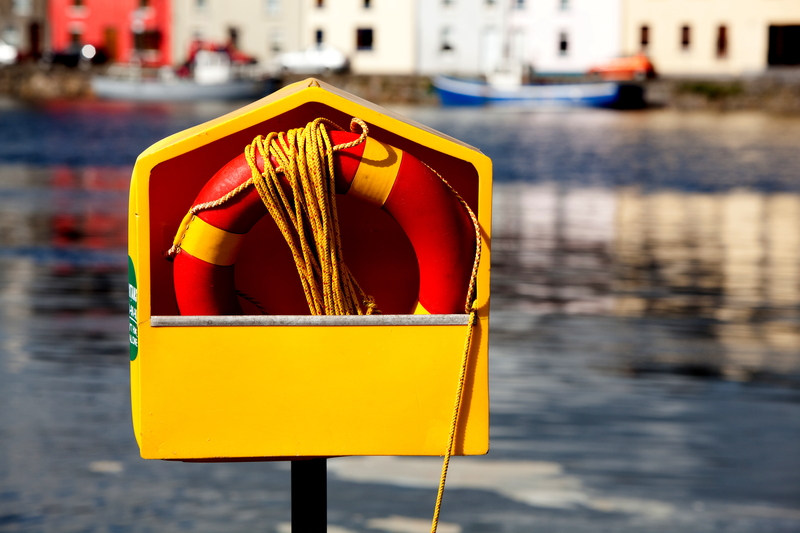
Photo: Image: Madis Uudam | Dreamstime.com
Dublin pilots IoT and new procurement approach for water safety
01 March 2021
by Sarah Wray
Four companies are piloting Internet of Things (IoT) solutions in Dublin to mitigate the costs and risks associated with ring buoys being stolen.
The Smart Dublin project is also using a new procurement approach which aims to support easier adoption of innovative tools.
Local authorities across Ireland and elsewhere face a challenge with ring buoy theft. Around 15 of Dublin’s 140 ring buoys go missing or are stolen every week. The need to replace nearly 600 ring buoys each year costs over €20,000 (US$24,000) as well as potentially endangering lives.
To address the issue, which remains pressing amid the pandemic as more people visit outdoor spaces such as beaches, an innovation challenge was launched in 2020. The IoT solutions from Civic Integrated Solutions, mSEMICON Teoranta, RE:SURE Intelligence, and ZiggyTec will monitor in real time when life buoys are tampered with or taken.
The tools are being trialled by the four Dublin region local authorities, Dublin, Fingal, Dun Laoghaire-Rathdown and South Dublin. Twenty-five sensors will be placed at each of the four test locations for the six-month pilot.
Peter Keating, Water Safety Development Officer at Dun Laoghaire-Rathdown (DLR) County Council, said: “Having real-time notification on lifesaving equipment will make a significant difference in the response times of DLR staff to missing life-saving equipment. Dún Laoghaire Rathdown County Council have 52 ring buoys along our coast and every ring buoy has the potential to save a life but only if it is present.”
He added: “Traditionally a ring buoy inspection on all locations is carried out every two weeks and can take up most of the day, with this technology the inspection time is greatly reduced and can be spent on more beneficial tasks.”
Procurement
The pilot project uses a new procurement approach. While the two-phase multi-party framework agreement method has been deployed before in the Netherlands, this is the first time in Ireland, and has been supported through the European Assistance for Innovation Procurement initiative (Eafip). Netherlands-based procurement specialists Corvers and Irish law firm A&L Goodbody have advised on the process.
All companies whose solutions are deemed successful at the end of Phase One will automatically proceed to Phase Two. At this stage, the 23 local authorities listed on the procurement framework can draw down on the successful solutions through a mini-competition and buy them without going out to tender themselves.
This way, the solutions can be scaled up faster across councils. The approach also aims to enable more small and medium-sized companies participate in tenders.
Nicola Graham, Smart City Operations Manager at Dublin City Council, told Cities Today: “This process allows flexibility and to be more agile in the development. You don’t have to be as specific [about the] requirements and you can work with companies to develop better solutions.”
“It might not necessarily work for every type of solution – traditional procurement has its place – but it’s another method, depending on the type of solution that you’re looking for,” she added.
The project has been funded through the Department of Public Expenditure and Reform’s Public Service Innovation Fund 2019 and has been match-funded by Dublin City Council’s Smart City section along with the Water Safety Development sections of each of the four Dublin Region local authorities. It is also supported by Water Safety Ireland.
Image: Madis Uudam | Dreamstime.com











